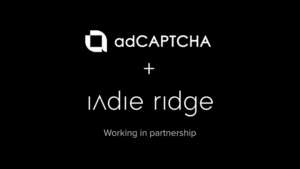By Dale Lovell, UK MD and Co-Founder of native advertising company ADYOULIKE
MediaLad’s recent column on how to survive in a cookie-less world made fascinating reading but I have some misgivings around his questions over the importance of scale.
To deliver value he suggested that advertisers work closely with publishers – ‘work harder, think more strategically, partner wisely.’
In an ideal world this is what would happen. Brands and their agencies would go niche, go strategic and create amazing partnerships that win awards, win business and rejuvenate a tarnished sector. And some businesses will do some of this, for a time.
But the reality is that when it comes to digital advertising, scale is important.
‘Targeted scale’, something of a misnomer, is the crack-pipe of digital advertising; peddled so successfully by the social media platforms and Google for the best part of two decades. “There’s a lot people out there, in any niche — and we can find them for you.”
Marketers aren’t ready to put that pipe down just yet.
But that doesn’t mean that things will not change now we don’t have cookies to rely on. But adtech is as much a part of the solution, as it was part of the problem. If anyone thinks adtech will not be part of the solution now that Google has blocked third-party cookies, needs to come back to reality.
Adtech is here to stay.
It will though of course change — just like ad agencies and publishers have changed exponentially over the last couple of decades.
Rob Webster, Founder of Canton Marketing Solutions, writing for New Digital Age, sums up why change has to come, quite succinctly;
“Adtech must also be rebuilt from the point of view of the customer. This was little considered 20 years ago and those building the prominent solutions then could not have imagined how bloated and monstrous their creations would become. Privacy by design is the new paradigm and we need to consider how marketing activity can be done in this new world.”
Here’s why adtech will undoubtedly be part of any new digital advertising dawn:
Technology works
Google hasn’t killed technology. It hasn’t killed the need to verify traffic sources, track campaign performance, monitor block lists, device target, run multiple creative sets, gather campaign data, geo target or layer on first party data.
Technology is still at the heart of most digital campaigns. Adtech will still be required, will still be needed to streamline processes and campaigns.
As Rob Webster states in his column, the opportunity for ad technology businesses in a cookie-less, privacy-first world will inevitably be as an independent ‘joiner up of various walled gardens and ecosystems.’
This again is how it should be as independent companies are crucial to control media neutral execution and measurement.
A lack of resource and expertise
Supply-side adtech, be it in the form of vertical ad networks, specialist exchanges or long-tail partnerships, will continue to offer agencies simple scale and reach. Privacy and data concerns can be built-out, too.
Do agencies want to keep 10, 20, 30 or 40 plus long-tail publisher partnership discussions and relationships going indefinitely, when there are platforms out there that can do this heavy lifting for them?
Most agencies/publishers just don’t have the resource, or to some extent the technical expertise, required to scale this beyond a few publisher partnerships — this is where adtech helps.
Programmatic investment
Every holding group has its own trading desk. Every agency has a target of how much spend needs to be funnelled through their own trading desk. Brands are in-housing, running to engage one on one with adtech. This makes and saves a lot of money for businesses.
Agencies like money. Advertisers like the clearer, albeit flawed, transparency of programmatic trading. This means the digital ad ecosystem depends on adtech.
No one is walking away from programmatic trading anytime soon. In fact, it’s growing. Everyone wants to find a solution that works.
Adtech is agile
Adtech businesses are typically lean startup and scaleup entities with engineering at their core. They are nimble tugboats, capable of doing lots of work, quickly, efficiently and in areas where ‘big shipping’ agencies and publishers cannot.
Adtech exists to service and sell to these large ships of the media landscape. They will continue to pivot, create and disrupt in order to survive.
The reason to innovate now is strong. And it’s adtech businesses that are far more likely to create the much-needed innovations in this space than other stakeholders.












